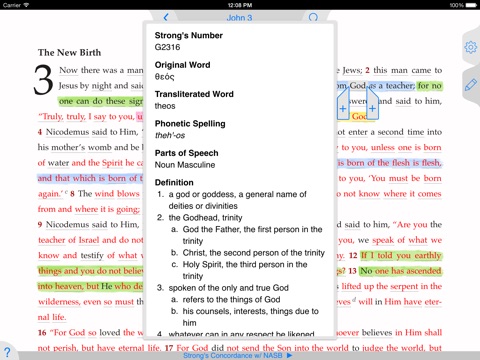
James Strong, former professor of exegetical theology at Drew Theological Seminary, spent more than thirty-five years preparing his landmark concordance. First published in 1890 with the help of more than one hundred colleagues, Strongs remains the most widely used concordance and dictionary of Bible words. This updated edition of Strongs Exhaustive Concordance takes James Strongs monumental work and updates it to be even more useful to the modern reader. It maintains all of the features that have made Strongs indispensable for over 100 years: - Allows the reader to easily find all biblical occurrences of a word in the New American Standard Bible - Points the reader to the underlying Hebrew and Greek words - Uses the Strongs numbering system which is used in many of the new study tools of today.
This updated edition of Strongs Exhaustive Concordance takes James Strongs monumental work and updates it to be even more useful to the modern reader. It maintains all of the features that have made Strongs indispensable for over 100 years:
- Allows the reader to easily find all biblical occurrences of a word in the New American Standard Bible
- Points the reader to the underlying Hebrew and Greek words
- Uses the Strongs numbering system which is used in many of the new study tools of today
And adds new features that make it even more useful:
- Corrected, updated, and expanded using the latest computing search tools
- Extra-clear font and page design make this edition readable and easy to navigate
- Updated and improved Hebrew and Greek dictionaries tie each word to the Greek or Hebrew root
- Discover the Hebrew and Greek words underlying the NASB English using the Strongs numbering system
- Use the updated Hebrew and Greek dictionaries to find brief definitions of each word of the original languages
Go beyond mere searches for lost verses and hone your skills by utilizing this tools more advanced features.
Find every occurrence of any word in the New American Standard Bible. Only the words not likely to be used in locating a passage have been eliminated (words such as should, those, and when) or condensed to include only the important occurrences (words such as bring, day, and might).
Students of the Bible utilize the wealth of resources offered in Strongs ranging from doing word and thematic studies to probing the deeper meanings embedded in the original languages of the Bible.


